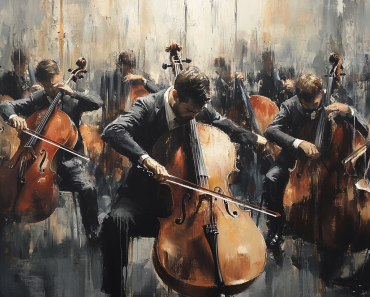Table of Contents
Music Producer vs Music Composer, Understanding The Difference
In the world of music, the roles of a music producer and a music composer are often intertwined, yet they serve distinct functions within the music production process. Understanding the key differences between these two roles is essential for anyone interested in the music industry. This article will discuss the responsibilities, skills, and contributions of both music producers and music composers, shedding light on how they collaborate and the unique impact they have on the final music product.

What is the Role of a Music Producer in Music Production?
A music producer plays a pivotal role in the music production process, overseeing the entire journey of a piece of music from conception to completion. The producer is responsible for managing the recording sessions, ensuring that the artist’s vision is realized while also bringing their own creative input to the table. This role requires a deep understanding of music, technical skills in digital audio production, and the ability to work collaboratively with various artists and musicians.
How Does a Music Producer Oversee the Recording Process?
The music producer oversees the recording process by coordinating all aspects of the session, from selecting the right studio to managing the technical equipment. They work closely with sound engineers to ensure that the sound quality meets industry standards. During recording sessions, the producer may guide the artists on vocal delivery, instrumentation, and arrangement, ensuring that every element aligns with the desired sound. This oversight is crucial as it helps to bring the music to life, transforming initial ideas into a polished final product.
What Skills are Essential for a Music Producer?
Essential skills for a music producer include a strong understanding of music theory, proficiency in digital audio workstations (DAWs), and excellent communication abilities. A music producer must be adept at arranging music, as they often collaborate with composers and songwriters to shape the final piece. Additionally, they should possess strong leadership qualities to manage recording sessions effectively and inspire artists to perform at their best. The ability to adapt to various music genres is also vital, as producers often work across different styles and formats.
How Does a Music Producer Collaborate with Artists?
Collaboration is at the heart of a music producer’s role. They work closely with artists to understand their vision and help them articulate it through music. This collaboration can involve brainstorming sessions, where ideas are exchanged, and the producer may suggest changes to the arrangement or composition to enhance the overall sound. By fostering a supportive environment, the producer encourages artists to explore their creativity, ultimately leading to a more authentic and impactful piece of music.
What Does a Music Composer Do in the Music Industry?
A music composer is primarily focused on creating music, writing melodies, harmonies, and lyrics that resonate with audiences. Composers work across various genres, crafting pieces that can be performed by musicians or used in film, television, and other media. Their role is crucial in the music industry, as they are the architects of the sound that producers will later bring to life.
How Does a Music Composer Write Music for Different Genres?
Writing music for different genres requires a composer to have a versatile understanding of various musical styles and conventions. A composer can draw from their knowledge of music theory to create pieces that fit within the parameters of a specific genre, whether it be classical, jazz, pop, or electronic. This adaptability allows composers to experiment with different sounds and structures, ensuring that their compositions resonate with the intended audience. By studying the characteristics of each genre, a composer can effectively tailor their writing to meet the expectations of listeners.
What is the Importance of Music Theory for a Composer?
Music theory is fundamental for a composer, as it provides the framework for understanding how music works. A solid grasp of music theory enables composers to create complex harmonies, intricate melodies, and effective arrangements. It also aids in the communication of ideas with other musicians and producers. By applying music theory principles, a composer can enhance their compositions, ensuring that they are not only creative but also structurally sound and engaging for performers and audiences alike.
How Does a Music Composer Arrange Music for Performances?
Arranging music for performances is a critical aspect of a composer’s role. This involves taking the written music and adapting it for various instruments and vocalists, ensuring that each part complements the others. A composer may also consider the dynamics, tempo, and overall mood of the piece when arranging it for live performances. This process requires a keen ear for detail and an understanding of how different instruments interact, allowing the composer to create a cohesive and captivating performance that showcases the music effectively.
What are the Key Differences Between a Music Producer vs Music Composer?
While both music producers and composers play vital roles in the music production process, their responsibilities and skill sets differ significantly. Understanding these differences is essential for anyone looking to navigate the music industry effectively.
How Do Their Roles Differ in the Music Production Process?
The primary difference between a music producer and a music composer lies in their roles within the music production process. A music producer oversees the entire production, managing the recording sessions and ensuring that the final product aligns with the artist’s vision. In contrast, a composer focuses on creating the music itself, writing melodies and harmonies that will be performed or recorded. While both roles are collaborative, the producer’s role is more managerial, while the composer’s role is more creative and focused on music composition.
What are the Differences in Skills Required for Each Role?
The skills required for a music producer and a music composer also differ. A music producer must possess strong technical skills in digital audio production, as well as leadership and communication abilities to manage recording sessions effectively. On the other hand, a composer needs a deep understanding of music theory and composition techniques to create compelling music. While both roles require creativity, the producer’s creativity often manifests in the arrangement and production of the music, whereas the composer’s creativity is evident in the writing and composition of the music itself.
How Do Their Contributions Impact the Final Music Product?
The contributions of both music producers and composers significantly impact the final music product. A music producer’s oversight and management can elevate a piece of music, ensuring that it is polished and ready for release. Their ability to collaborate with artists and musicians can lead to innovative sounds and arrangements that enhance the overall quality of the music. Conversely, a composer’s ability to write engaging and memorable music is foundational to the success of any project. Without a strong composition, even the best production efforts may fall flat. Together, they create a synergy that brings music to life.
How Does a Songwriter Fit into Music Production?
A songwriter plays a crucial role in the music production process, often working closely with both music producers and composers. They are responsible for crafting the lyrics and melodies that form the backbone of a song, making their contributions essential to the overall creative process.
What is the Relationship Between a Songwriter and a Music Producer?
The relationship between a songwriter and a music producer is collaborative and symbiotic. The producer may work with the songwriter to refine lyrics and melodies, offering suggestions that enhance the song’s appeal. This collaboration can lead to a more polished final product, as the producer’s expertise in music production complements the songwriter’s creative vision. Together, they can create music that resonates with audiences and stands out in the competitive music industry.
How Does Songwriting Influence Music Composing?
Songwriting significantly influences music composing, as it provides the foundational elements upon which a composition is built. A composer can take a songwriter’s lyrics and melodies and expand upon them, adding harmonies, instrumentation, and arrangements that elevate the piece. This interplay between songwriting and composing allows for a richer musical experience, as the composer can interpret and enhance the songwriter’s vision through their unique creative lens.
What are the Differences Between a Songwriter and a Music Composer?
While both songwriters and music composers create music, their focus and methods differ. A songwriter typically concentrates on writing lyrics and melodies for songs, often with a specific audience or market in mind. In contrast, a music composer may work on a broader range of projects, including film scores, orchestral pieces, and other forms of music composition. The songwriter’s work is often more commercial, while the composer may have the freedom to explore more artistic and experimental avenues.
What are the Differences Between Music Producers in the Industry?
Within the music industry, there are various types of music producers, each specializing in different aspects of music production. Understanding these differences can help artists and musicians choose the right producer for their projects.
How Do Different Types of Music Producers Work?
Different types of music producers work in various ways, depending on their specialization and the genre of music they focus on. Some producers may work primarily in the studio, overseeing recording sessions and managing the technical aspects of production. Others may take a more hands-on approach, actively participating in the songwriting and arranging processes. Each producer brings their unique style and expertise to the table, influencing the final sound of the music.
What are the Key Differences Between a Record Producer and a Music Producer?
The key differences between a record producer and a music producer often lie in their specific roles within the music industry. A record producer typically focuses on the production of recorded music, working closely with artists to create commercially viable tracks. In contrast, a music producer may have a broader scope, encompassing various aspects of music production, including live performances and arrangements. While both roles require a deep understanding of music, their focus and responsibilities can vary significantly.
How Do Music Producers Specialize in Various Music Genres?
Music producers often specialize in specific genres, allowing them to develop a deep understanding of the nuances and trends within those styles. This specialization enables them to create music that resonates with audiences and meets industry standards. By focusing on particular genres, producers can hone their skills and build a reputation within the music industry, making them sought-after collaborators for artists looking to create impactful music.
Additional Reading
More blog posts can be found here. Consider following Breve Music Lessons on Facebook.






